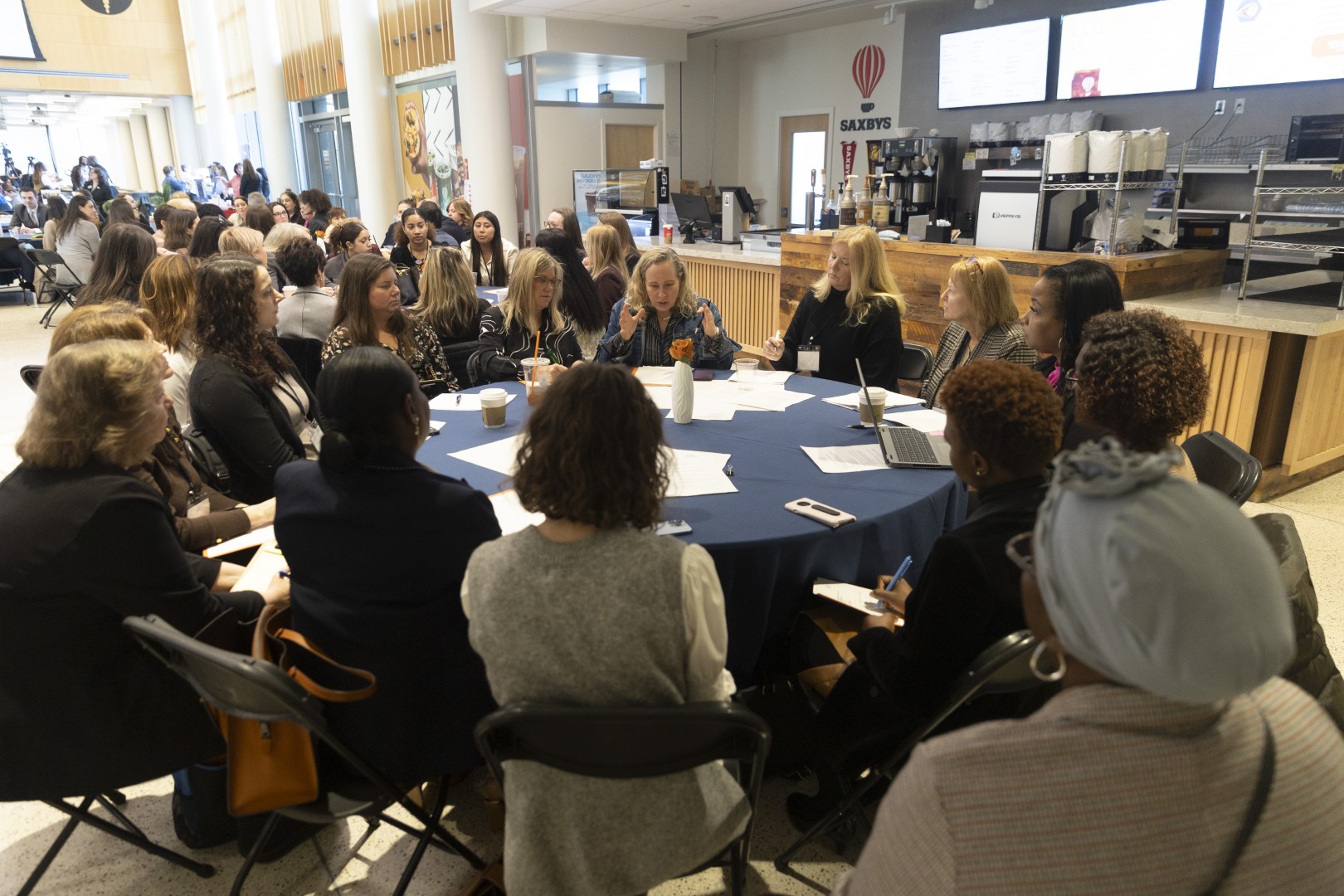
NPDC was founded in 2006 to help South Jersey’s non profit organizations continue to do good…but do it even better, this historically all-volunteer service organization is dedicated to enhancing the work of the region’s 10,000+ nonprofits and their leaders through technical assistance, information-sharing, education, celebrations, and networking. We like to say that “We do everything for the region’s NPOs…except write the checks.” And we even do that occasionally—when we present small stipends to our annual award winners, in recognition of their outstanding service to the community.
We build NPO capacity across the region in three ways:
• We Educate
• We Connect, and
• We Celebrate.
We “educate” by providing technical assistance in workshops, seminars, and forums. We “connect” by hosting events that bring NPO leaders together and by introducing those leaders to potential sources of support, including key funders. And we “celebrate” by recognizing the individuals and organizations that are successful in achieving their not-for-profit missions.
NPDC is accredited as a 501 (c) (3) organization by the IRS and has served more than 2,500 of the region’s NPO professionals and recognized more than 60 of the region‘s top NPO leaders and organizations at its annual Awards Dinner. In addition, the organization and eight of its volunteer leaders have been cited by former President Barack Obama with the President’s Volunteer Service Award.
The overarching goals that comprise NPDC’s Vision include:
• Establishing South Jersey as the most “NPO friendly” region in the nation
• Being South Jersey’s leading supporter of the work of NPOs by providing:
– Technical assistance through capacity building programs, and
– Networking opportunities, and
– Visibility through recognition and celebrations of NPO successes.
Our Mission has always been to help the region’s non-profit organizations that provide direct services to their clients to do it “better.” And our operating premise has been that when we make even just one of our region’s NPOs better, we help us all.
NPDC was founded with the goal of increasing donors’ “social return on investment” and to stimulate new sources of philanthropy in this region and it executes this mission by providing opportunities for enhancing the work of Southern New Jersey nonprofits and their leaders through technical assistance, information-sharing, education, networking, and recognition and celebrations of success. This means that NPDC’s primary business is building capacity. And because we have traditionally been an all-volunteer organization, the money we raise has gone directly into providing programs that help other nonprofit organizations (NPOs).
We could never do what we do without lots of help from lots of individuals and organization, both for profit and not for profit. We are proud to be a product of the cooperation among and leveraging of resources from nonprofits, businesses, government, and higher education.
We value the direct support of organizations such as our legacy Presenting Partner, TD Bank, or our other generous sponsors, including Archer & Greiner, Bowman & Co., Ogletree Deakins, Republic Bank, and Rowan University.
We have also benefitted from both direct support and gift-in-kind services and from many valued partners, including Alloy Silverstein, Beneficial Bank, Camden County Boat House, Catholic Partnership Schools, Charity Services Center, Ciavo Design, EIRC, Idea Innovations, IRS, Linchpin Solutions, Manna Design, New Jersey American Water, People for People Foundation, PSEG, Seton Hall University, SJ Biz, Southern New Jersey Business People, The Joseph Fund, The Networking Exchange and Talk Exchange Radio, W.P. Hardy Consulting, and WMSH Marketing Communications.
And our reach would not be as broad as it has been without the collaboration of organizations that are committed to capacity building, such as the Wells Fargo Foundation, the United Way of Greater Philadelphia and Southern New Jersey, and the statewide Center for Non Profits, for which we are proud to serve as its Southern New Jersey affiliate.
NPDC’s educational programs have been created for leadership track NPO mangers as well as others wishing to broaden their skills and knowledge. Program participants learn to identify, understand, and apply a broad spectrum of management skills and practices in 20 critical areas of NPO program management, including NPO creation, fundraising, governance, communications, finance, program impact, succession planning, law, accounting, human resources, volunteer recruitment and utilization, public speaking, time management, effective meetings, and more, as well as the emerging area of social entrepreneurship and social ventures.
Our curriculum includes:
Strategic Planning: If You Don’t Know Where You Want to Go, You Can’t Get There
Fund Raising and Development: How to Get the Money You Need
Board Governance: What Every NPO Board Member Needs to Know
Communications/Marketing and Branding: If They Don’t Know You, They Can’t Help You
Effective Business Writing: Everything from Inter-Office Memos to Strategic Plans.
Elements of Successful Leadership: How to Motivate, Earn Trust, and Get Results
Finance & Budget: Budgets, Cash Flow, Fiduciary Responsibilities and More
Success Metrics and Program Impact: You Are What You Count
HR and Employment Law: Understanding Workplace Laws and Creating a Environment
Volunteer Management: Finding Them and Keeping Them.
Legal Issues for NPOs: What to Ask Your Lawyer
Accounting and Tax Exempt Issues: You Have to Know the Rules
Starting an NPO: What You Need to Know and What You Need to Do
Marketing the Small NPO on a Shoestring: Using “Earned Media” and Collaboration
Succession Planning for NPOs: Who holds the keys?.
Public Speaking for NPO Pros: Looking Good and Sounding Good
Time Management: Doing What You Like to Do vs. What You Need to Do
Effective Meetings: Is This Term Really and Oxymoron?
Social Media: What To Do and What Not To Do
Social Entrepreneurship and Social Ventures: The growing world of social entrepreneurship initiatives and social ventures.